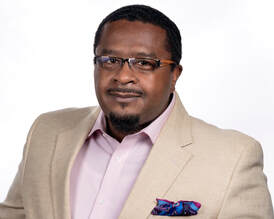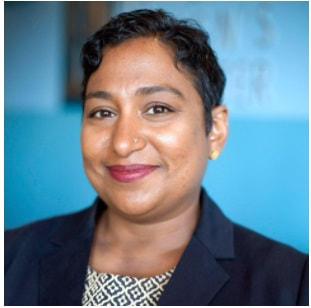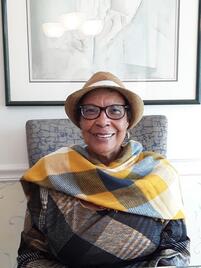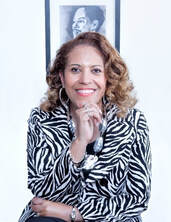FAO North America has announced the winners of the 2020 World Food Day Poetry Competition
FAO North America has just announced the winners of the 2020 World Food Day Poetry Competition. Check out the recording of the event for more information: 2020 World Food Day Commemorative Ceremony
Congratulations to the winners!
You can watch the videos uploaded by FAO North America here:
1st place. https://twitter.com/FAONorthAmerica/status/1353806246168637443
2nd place. https://twitter.com/FAONorthAmerica/status/1354091955026866177
3rd place. https://twitter.com/FAONorthAmerica/status/1354798020123127810
1st place - Brian James from Manassas, VA
Testimony
I was a teenage father then, with little money
My wife and I saved our lunch so our son could eat
And we went without a meal that day
As night approached we had hoped he would sleep until morning
And with every twist and turn he made, my anxiety rose and fell
But as toddlers do, he rose hungry
Rubbing circles on his belly
He was trying to be a big boy
Trying to control the desperation,
I saw in his eyes
I nodded to my wife
And gathered change from everywhere, anywhere
Between cushions and under couches
Closets, desk and cabinet drawers
And I was off to shop with newly found pocket change
Enough for instant noodles, kool aid, bread, and peanut butter
Even as I counted out the change, and people in line smirked and commented
The cashier and I knew I didn't have enough
My eyes swelled, and I
Tried to control my desperation
She smiled and said, “well that's just enough”
Bagged my food
And I left
Walking back to our little apartment
I will never forget that feeling
Emotion overcame me
Not embarrassment or shame
Just thankfulness
Just love
I’d do anything
For my boy
I was a teenage father then, with little money
My wife and I saved our lunch so our son could eat
And we went without a meal that day
As night approached we had hoped he would sleep until morning
And with every twist and turn he made, my anxiety rose and fell
But as toddlers do, he rose hungry
Rubbing circles on his belly
He was trying to be a big boy
Trying to control the desperation,
I saw in his eyes
I nodded to my wife
And gathered change from everywhere, anywhere
Between cushions and under couches
Closets, desk and cabinet drawers
And I was off to shop with newly found pocket change
Enough for instant noodles, kool aid, bread, and peanut butter
Even as I counted out the change, and people in line smirked and commented
The cashier and I knew I didn't have enough
My eyes swelled, and I
Tried to control my desperation
She smiled and said, “well that's just enough”
Bagged my food
And I left
Walking back to our little apartment
I will never forget that feeling
Emotion overcame me
Not embarrassment or shame
Just thankfulness
Just love
I’d do anything
For my boy
Click on this link to watch Brian reading his poem.

Brian Donnell James is an emerging writer who has been published in Africa, Europe, and throughout the United States. He had recently published work in several poetry anthologies, magazines, and journals. Much of his work centers around racial harmony, love, and taking a stand against discrimination of all forms.
2nd place - Methany Eltigani, Washington, DC
Grow. Nourish. Sustain. Together.
Grow
We mention food deserts as if nothing can grow there
Like we cannot plant seeds to water and sow there
I find it hard to believe when there’s plenty to spare
That there are still those of us whose cabinets are bare
Is it that we don’t care? Is humanity so rare?
What stops us from building gardens everywhere
For all to eat and be merry with plenty to share?
Nourish
We nourish ourselves with the food on our plate
But for some there’s never enough to satiate
To flourish and grow, to live and create
We must be free from hunger and pain
If we all work together, this pain can abate
In a world free of hunger that we cultivate
While so many suffer, there’s no time to wait
Sustain
Making change is one thing, but we must make it last
That means no one left out, not one outcast
If our actions are our future, we must learn from our past
And answer all the questions that were too hard to ask
Where have we failed, how can we surpass
All that I know is we have to act fast
To make food insecurity a thing of past
Together
If divided we fall and united we stand
Then we all must learn to lend a hand
It’s true that some problems are far too grand
To ever be conquered by just one man
But hunger is solvable if we’re all in on the plan
Just by joining together, our reach will expand
And touch every corner of every land
Grow
We mention food deserts as if nothing can grow there
Like we cannot plant seeds to water and sow there
I find it hard to believe when there’s plenty to spare
That there are still those of us whose cabinets are bare
Is it that we don’t care? Is humanity so rare?
What stops us from building gardens everywhere
For all to eat and be merry with plenty to share?
Nourish
We nourish ourselves with the food on our plate
But for some there’s never enough to satiate
To flourish and grow, to live and create
We must be free from hunger and pain
If we all work together, this pain can abate
In a world free of hunger that we cultivate
While so many suffer, there’s no time to wait
Sustain
Making change is one thing, but we must make it last
That means no one left out, not one outcast
If our actions are our future, we must learn from our past
And answer all the questions that were too hard to ask
Where have we failed, how can we surpass
All that I know is we have to act fast
To make food insecurity a thing of past
Together
If divided we fall and united we stand
Then we all must learn to lend a hand
It’s true that some problems are far too grand
To ever be conquered by just one man
But hunger is solvable if we’re all in on the plan
Just by joining together, our reach will expand
And touch every corner of every land

Methany Eltigani is a recent alum of the Bill Emerson National Hunger Fellowship and is currently pursuing a Master's in Public Health Nutrition from NYU. Methany completed her undergraduate degree at the University of Pennsylvania with majors in Nutrition and Sociology. Her passions for increasing access to quality food and eliminating food insecurity come from personal experience and a commitment to equity and justice.”
3rd place - Sunu Chandy, Washington, DC
Do the Math: Spring 2020, Quarantine Edition
Math Problem 342: If your breakfast comes from school and you don’t go to school then what happens? If your lunch comes from school and you don’t go to school then what happens? If your afternoon snack comes from the afterschool program, and it is all cancelled until further notice, then what happens?
Math Problem 343: If your mom loses her job at the restaurant because no one is allowed to dine out during the pandemic, then what happens? If your mom loses her job at the restaurant and then can’t bring home food at the end of the night, then what happens? If your mom loses her job and then there’s no money for groceries, then what happens?
Math Problem 344: If your health insurance is tied to your job and then you lose your job, then what happens? If your employer only gives health insurance to full-time employees and then you get your hours cut, then what happens? If you are furloughed and can barely make rent, much less food, then what happens?
Math Problem 345: If your unemployment check barely pays for your rent and then there’s no money left for food, then what happens?
Math Problem 346: If the church with the food pantry and the friendly smile is now closed until further notice, then what happens?
Math Problem 347: If there is one gallon of juice in the fridge and there are four children and the juice is gone by Wednesday, then what happens?
Math Problem 348: If there are three stalks of broccoli, and six people in the family, then what happens?
Math Problem 349: If the toddler is allergic to wheat and all the food at the new food donation place contains wheat, then what happens?
Math Problem 350: If there are 680,000 people living in Washington DC, and most of them are not hungry, then what happens?
Math Problem 351: If there are close to 680,000 living in Washington DC and 1 out of 10 residents of the metropolitan Washington DC region is food insecure, how many people is that? And if nearly ⅓ of them are children, how many children is that?
Math Problem 342: If your breakfast comes from school and you don’t go to school then what happens? If your lunch comes from school and you don’t go to school then what happens? If your afternoon snack comes from the afterschool program, and it is all cancelled until further notice, then what happens?
Math Problem 343: If your mom loses her job at the restaurant because no one is allowed to dine out during the pandemic, then what happens? If your mom loses her job at the restaurant and then can’t bring home food at the end of the night, then what happens? If your mom loses her job and then there’s no money for groceries, then what happens?
Math Problem 344: If your health insurance is tied to your job and then you lose your job, then what happens? If your employer only gives health insurance to full-time employees and then you get your hours cut, then what happens? If you are furloughed and can barely make rent, much less food, then what happens?
Math Problem 345: If your unemployment check barely pays for your rent and then there’s no money left for food, then what happens?
Math Problem 346: If the church with the food pantry and the friendly smile is now closed until further notice, then what happens?
Math Problem 347: If there is one gallon of juice in the fridge and there are four children and the juice is gone by Wednesday, then what happens?
Math Problem 348: If there are three stalks of broccoli, and six people in the family, then what happens?
Math Problem 349: If the toddler is allergic to wheat and all the food at the new food donation place contains wheat, then what happens?
Math Problem 350: If there are 680,000 people living in Washington DC, and most of them are not hungry, then what happens?
Math Problem 351: If there are close to 680,000 living in Washington DC and 1 out of 10 residents of the metropolitan Washington DC region is food insecure, how many people is that? And if nearly ⅓ of them are children, how many children is that?

Sunu P. Chandy (she/her) is a voter, mask-wearer during a pandemic, flaming feminist civil rights attorney, poet, parent, Mar Thoma/Quaker/Buddhist/Unitarian, queer woman of color, and the daughter of immigrants to the U.S. from Kerala, India. She serves as the legal director of the National Women’s Law Center in Washington, D.C., is on the board of the Transgender Law Center, and is a former board member of Split This Rock, a poetry and social justice organization.
Honorable mention - The Book Bag Store" by Aressa Williams from Upper Marlboro, MD
The Book Bag Store
Sometimes it’s apple sauce.
Sometimes it’s boxes of raisins.
A sandwich or two.
Other times, fresh fruit.
Kelvin Jr. collects free-lunch offerings
In exchange for jokes and stories.
Classmates push unwanted food to “greedy Kel”.
No begging. No bullying. No stealing.
He stores the mid-day meal fare in his book bag.
New cafeteria monitor snatches the six grader’s bag,
Dumps two sandwiches, three apples on the floor,
Reports Kelvin Jr. to the principal for “hoarding food”.
Head down, feeling shame, long eye-lashes hide his tears.
Nobody asked him why.
Miss Hill, the school counselor, defends the sad lad.
Kelvin Sr. serves time in Lorton.
Chronic depression traps Mom in dark spaces.
Extra food feeds young siblings at home.
Twin sisters and baby brother wait for Kel’s “book bag store”.
The girls giggle; baby boy runs in circles.
Healthy treats from “the canvas store” soothe hunger pangs.
Today, peanut butter and jelly on wheat.
Sometimes it’s apple sauce.
Sometimes it’s boxes of raisins.
A sandwich or two.
Other times, fresh fruit.
Sometimes it’s apple sauce.
Sometimes it’s boxes of raisins.
A sandwich or two.
Other times, fresh fruit.
Kelvin Jr. collects free-lunch offerings
In exchange for jokes and stories.
Classmates push unwanted food to “greedy Kel”.
No begging. No bullying. No stealing.
He stores the mid-day meal fare in his book bag.
New cafeteria monitor snatches the six grader’s bag,
Dumps two sandwiches, three apples on the floor,
Reports Kelvin Jr. to the principal for “hoarding food”.
Head down, feeling shame, long eye-lashes hide his tears.
Nobody asked him why.
Miss Hill, the school counselor, defends the sad lad.
Kelvin Sr. serves time in Lorton.
Chronic depression traps Mom in dark spaces.
Extra food feeds young siblings at home.
Twin sisters and baby brother wait for Kel’s “book bag store”.
The girls giggle; baby boy runs in circles.
Healthy treats from “the canvas store” soothe hunger pangs.
Today, peanut butter and jelly on wheat.
Sometimes it’s apple sauce.
Sometimes it’s boxes of raisins.
A sandwich or two.
Other times, fresh fruit.
Click on the file below to listen to Aressa reading her poem:
| food_day_poetry.m4a |

Aressa V. Williams, a retired Professor of English, Teacher Consultant, and poet, is a seasoned journal writer (40 years). The message-maker believes creating poetry is "mind music".
Honorable mention - Joy Alford from Temple Hills, MD
Did they know
Did famers know
About the lines
Cars as far down streets
As eyes can see
Families that never
Expected to be in need
Sit for hours
Inching toward a church
They’d never been inside
Waiting for vegetable-laden boxes
Gingerly placed by gloved hands
Inside popped trunks
Or carefully laid on back seats
For strangers in need
By masked church servers
Who never met a farmer
And who never expected
To dispense their crops
“Feed my sheep 1 ” takes on new meaning
In times like these
When schools can no longer
Fill the void for families
Stretched beyond self-sufficiency
Past the point of ability
To purchase their own
No longer do neighbors glare
Cast dispersions of shame
For they too wait
In food lines along streets
Leading to churches
Dispensing boxes filled
With crops grown by farmers
Who never knew they’d be
The saving grace of a nation
In need of a new reason to go to church
1 John 21:17 “…Feed my sheep.”
Did famers know
About the lines
Cars as far down streets
As eyes can see
Families that never
Expected to be in need
Sit for hours
Inching toward a church
They’d never been inside
Waiting for vegetable-laden boxes
Gingerly placed by gloved hands
Inside popped trunks
Or carefully laid on back seats
For strangers in need
By masked church servers
Who never met a farmer
And who never expected
To dispense their crops
“Feed my sheep 1 ” takes on new meaning
In times like these
When schools can no longer
Fill the void for families
Stretched beyond self-sufficiency
Past the point of ability
To purchase their own
No longer do neighbors glare
Cast dispersions of shame
For they too wait
In food lines along streets
Leading to churches
Dispensing boxes filled
With crops grown by farmers
Who never knew they’d be
The saving grace of a nation
In need of a new reason to go to church
1 John 21:17 “…Feed my sheep.”

Joy Alford (Sistah Joy) was appointed as the inaugural Poet Laureate of Prince George's County, Maryland on September 18, 2018. since 2003, Sistah Joy is known for messages of social consciousness, inspiration and empowerment. She has blazed literary trails for over 25 years through her impassioned activist poetry. In 2002 she received the Poet Laureate Special Award from the DC Commission on the Arts and Humanities “for her outstanding contributions to the art of poetry in Washington, DC.”
Honorable mention - Donald Illich from Rockville, MD
Bounty
I hold two apples. I give you one.
You eat yours, cover seeds with dirt.
I water the seeds, nourish them.
A tree grows. I have many apples.
I give some to my family, sell
the rest. Many trees shoot up,
drop fruit in baskets. Boats,
planes, trucks carry them
across the country. In each city,
a woman feeds her child applesauce.
in each town a man pockets money
from this bounty. The seeds fall
everywhere, in the light of day,
in the dark of night. Orchards
dot once barren places. Children
become men and women, harvesting,
knowing what magic is, understanding
what one seed means. When fruit
is shared, when the heart of an apple
is revealed.
I hold two apples. I give you one.
You eat yours, cover seeds with dirt.
I water the seeds, nourish them.
A tree grows. I have many apples.
I give some to my family, sell
the rest. Many trees shoot up,
drop fruit in baskets. Boats,
planes, trucks carry them
across the country. In each city,
a woman feeds her child applesauce.
in each town a man pockets money
from this bounty. The seeds fall
everywhere, in the light of day,
in the dark of night. Orchards
dot once barren places. Children
become men and women, harvesting,
knowing what magic is, understanding
what one seed means. When fruit
is shared, when the heart of an apple
is revealed.

Donald Illich has published a poetry collection, "Chance Bodies" (The Word Works, 2018). His work has appeared in Iowa Review, Nimrod, Passages North, and many other journals. He lives in Maryland and works as a technical writer.